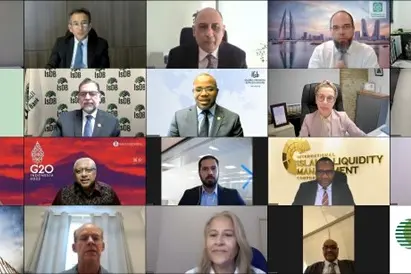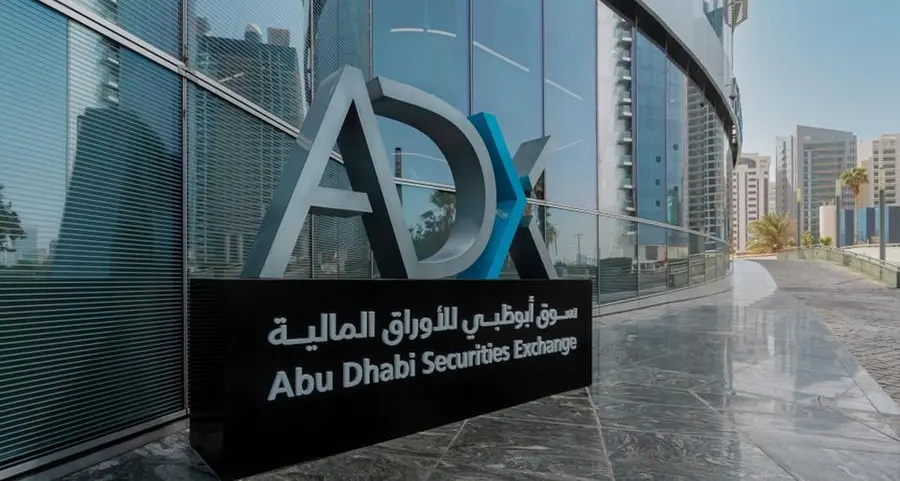PHOTO
Manama, Kingdom of Bahrain - The International Islamic Financial Market (IIFM) announced the launch of the 11th Edition of its Annual Sukuk Report. The research report provides comprehensive information on global Sukuk issuances, types of issuers, Sukuk structures, case studies on select landmark issuances, articles on Sukuk market developments and prospects as well as country-focused reports on IIFM founding member countries and major Sukuk issuing jurisdictions.
The report finds that the year 2021 was another record year for Sukuk with issuances amounting to US$ 188 billion as compared to US$ 175 billion in 2020. A quarter of these Sukuk are international while the rest are domestic issuances. Although new jurisdictions are continuously coming up, the Sukuk market remains highly concentrated with the top four countries accounting for 88.5% of total issuances. With US$ 77 billion of mostly domestic Sukuk issuances, Malaysia continues to rank number one, having a 41% market share, while Saudi Arabia accounts for 22% followed by Indonesia and Turkiye with 12.4% and 9.5% share respectively.
“In the last 20 years, 12,778 Sukuk were issued globally worth US$ 1.6 trillion, of which two-thirds were issued by one country, namely Malaysia. But Turkiye, Gambia, Indonesia and Bahrain are the markets with the greatest number of issuances. When it comes to the amount, the regional picture is quite different. In the GCC, the average Sukuk issue is about US$ 390 million, followed by US$ 370 million in Africa (excluding Gambia). In Asia and the Far East, the average issuance size is US$ 110 million,” said Mr. Khalid Hamad Al-Hamad, Chairman of IIFM in his opening address.
He added, “Some of the positive developments recently are the issuances by relatively new entrants such as Bangladesh, Nigeria and some other countries and issuances of longer tenor Sukuk (15 years to 50 years) from Malaysia, Indonesia and Saudi Arabia in particular. Moreover, Bahrain as a pioneer of short-term Sukuk issuances and countries like Brunei Darussalam, Indonesia and Malaysia have continued to regularly issue short-term Sukuk”.
“The report aims to create a better understanding of Sukuk structure preferences, historical issuance trends and other essential information that is based on Sukuk issuance database of IIFM. The database includes all the public issuances (short-term and long-term) as well as private placements by various issuers to the extent possible,” said Mr. Ijlal Ahmed Alvi, Chief Executive Officer of IIFM.
He added, “I hope that Sukuk issuers, investors and market participants will benefit from IIFM’s Template Sukuk Al Ijarah and Sukuk Al Mudarabah documentation. Subject to market requirements, IIFM also plans to issue more Sukuk documentation standards to assist in the development of a unified Sukuk market.”
A virtual launch event was held to mark the publication of the report where a group of international experts representing the Central Bank of Bahrain, Islamic Development Bank, Bank Indonesia, Ministry of Finance-Indonesia, Labuan Financial Services Authority (Labuan FSA), International Financial Services Board (IFSB), International Islamic Liquidity Management Corporation (IILM), Kuwait Finance House, Kuwait Finance House - Bahrain, CIMB Islamic Bank, Standard Chartered Bank Saadiq, DDCAP Group, London Stock Exchange Group, Bedford Row Capital, White & Case and Deloitte & Touche-Middle East spoke on Sukuk market trends and developments.
The webinar discussions focused on primary market issuances, Sukuk structures, secondary market activity, market conditions, Green & SRI Sukuk, impact of SDG’s implementation timeline and the evolving Sukuk landscape. There was also a special Country Focus session that included presentations on the Indonesian Sukuk market.
More than 350 market participants representing around 175 institutions based in over 35 countries registered for the webinar.
In his keynote address, Dr. Zamir Iqbal, Vice President, Finance (Chief Financial Officer), Islamic Development Bank (IsDB) said, “The Sukuk market is on its way to hit the US$ 1 trillion mark within the next 5 years. Such an industry benchmark would further enhance the visibility of Sukuk as an alternate capital market instrument for resource mobilization around the world and encourage more new issuers to tap into the market. This will definitely provide more impetus to regulators around the globe to incorporate Sukuk and its characteristics in their regulatory frameworks and allow a level playing field to all those who would like to diversify their funding sources through Sukuk.”
He also mentioned that IIFM’s standardized Sukuk templates and documentation offer transacting in Sukuk seamlessly to all stakeholders, be it issuers, regulators or investors and also drive more activity as well as raise awareness at the same time. He also reiterated the Islamic Development Bank’s commitment to the goal of creating an enabling environment for Islamic finance and Islamic Capital Markets through its Technical Assistance program where they assist their member countries in setting-up legal frameworks and regulations to drive Sukuk activity in the local and regional markets.
Mr. Nik Mohamed Din, Director-General of Labuan FSA (Malaysia) and Vice Chairman of IIFM in his special address at the launch event said, “The increased use of financial technology promotes more innovation and efficiency by making financial products and services more accessible to investors. From the Islamic Capital Market perspective, the digital transformation and blockchain application have the potential to scale up the existing mechanism, explore new markets and provide better solutions to fundraising. Blockchain and Smart Contracts help to simplify the structure of Sukuk issuance at all its stages including trading process and settlement period - thus implying digitization of Sukuk issuance process”.
He added, “Sukuk tokenization represents a major opportunity for the Islamic financial industry as it makes it possible to materialize and unitize existing assets from the physical world to the digital world. Tokenized assets are similar to investment in Sukuk where a digital token is created on a blockchain that supports smart contracts to represent interest in the underlying assets, beneficial ownership and constructive possession. Smart contracts also determine how the token can be purchased, traded and sold in a compliant fashion and since they are blockchain based, the transactions are immutable, traceable and fully transparent”.
Dr. Bello Lawal Danbatta, Secretary-General of the Islamic Financial Services Board (IFSB) also delivered a special address at the event where he stated, “A considerable number of international organizations, global leaders as well as Regulatory and Supervisory Authorities (RSAs) have been responding to climate change issues through various measures with the mutual goal to reduce Green House Gasses (GHG) emissions. The principles of Environmental, Social and Governance (ESG) are becoming trending in finance and are aligned with the Islamic principles and objectives set out in the concept of Maqashid Al-Shari’ah.
He further said, “As the term ESG, Sustainable and Responsible Investment (SRI) and Impact Investing are gaining popularity, there have been efforts in Islamic finance industry to cater to this trend that is the issuance of global green Sukuk, sustainability Sukuk, SRI Sukuk, etc. The presence of sustainable-driven Islamic financial instruments, along with the risks faced by the IFSI, requires the RSAs’ attention to ensure and guide IFSI in incorporating the new climate-related risks into their risk management framework for the purpose of maintaining the overall financial system resilience and stability. In this regard, the IFSB is currently developing new standards to ensure proper guidance is provided in the Islamic Financial Services industry in addition to collaborations with its members and other international standards setting-bodies in these areas.”
Mr. Alvi acknowledged the continuous support of the Central Bank of Bahrain, Securities Commission Malaysia, Ministry of Finance-Indonesia, Brunei Darussalam Central Bank, Capital Markets Board of Turkey, Central Bank of Sudan, State Bank of Pakistan and Bank Bangladesh in helping IIFM with the verification of Sukuk issuances data.
He also thanked the IIFM research team, contributors of Sukuk case studies & articles from leading financial institutions, country focus reports from member countries’ regulators and the valuable support from the sponsors namely DDCAP Group, Kuwait Finance House, ABC Islamic Bank, National Bank of Kuwait and Labuan FSA which made the production of this report possible.
The IIFM Sukuk Report (11th Edition) is freely downloadable from: www.iifm.net
-Ends-
About IIFM
IIFM is a global standard-setting body of the Islamic Financial Services Industry (IFSI) focusing on standardization of Shari’ah-compliant financial contracts and product templates.
IIFM is hosted by the Central Bank of Bahrain (CBB) and was established under Royal Decree No (23) Year 2002 of the Kingdom of Bahrain as a neutral and non-profit international Islamic infrastructure development institution, by the collective efforts of the CBB (formerly Bahrain Monetary Agency), Islamic Development Bank, Bank Indonesia, Bank Negara Malaysia (delegated to Labuan Financial Services Authority), Central Bank of Sudan and Brunei Darussalam Central Bank (formerly Autoriti Monetari Brunei Darussalam).
Besides the Founding and Permanent Members, IIFM Board of Directors consist of Islamic and international banks namely Kuwait Finance House, Dubai Islamic Bank, Saudi National Bank, GFH Financial Group, Standard Chartered Saadiq, Bank ABC Islamic, Credit Agricole CIB, National Bank of Kuwait and BNP Paribas.
IIFM is also supported by certain regulatory and government bodies such as State Bank of Pakistan, National Bank of Kazakhstan and DIFC Authority as well as by a number of international and regional financial institutions and other market players active in Islamic finance.
Information on IIFM and its activities is available on www.iifm.net
Media Contact:
Mr. Usman M. Naseer, Senior Officer, Business Development, IIFM
Office: +973 17 500161; e-mail: usman.naseer@iifm.net




















